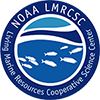
PROGRAM DIRECTOR (University of Miami-Rosenstiel School)
Professor in Marine Biology and Ecology
University of Miami-Rosenstiel School
Phone: (305) 421 4852 | Email: ebabcock@rsmas.miami.edu
Education
University of Washington (1998)
Ph.D., Fisheries Biology
University of California, Berkeley (1990)
B.A., Biology and Environmental Science
Research Interests
- Fisheries stock assessment and quantitative ecological modelling, with focal species including sharks, tunas, billfishes, sturgeons, conchs, lobsters, and sea turtles.
- The use of innovative data sources and analysis methods to inform conservation and management of fisheries for which traditional fisheries data are lacking.
- The interface between marine reserves and fishery management.
Selected Publications
- Forrestal, F. C., M. Schirripa, C. P. Goodyear, H. Arrizabalaga, E. A. Babcock, R. Coelho, W. Ingram, M. Lauretta, M. Ortiz, R. Sharma, and J. Walter. 2019. Testing robustness of CPUE standardization and inclusion of environmental variables with simulated longline catch datasets. Fisheries Research 210: 1–13. doi:10.1016/j.fishres.2018.09.025
- Grüss, A., M. D. Drexler, C. H. Ainsworth, J. J. Roberts, R. H. Carmichael, N. F. Putman, P. M. Richards, E. Chancellor, E. A. Babcock, M. S. Love. 2018. Improving the spatial allocation of marine mammal and sea turtle biomasses in spatially explicit ecosystem models. Marine Ecology Progress Series 602: 255–274. doi:10.3354/meps12640
- Babcock, E. A., A. Tewfik, and V. Burns-Perez. 2018. Fish community and single-species indicators provide evidence of unsustainable practices in a multi-gear reef fishery. Fisheries Research doi: 10.1016/j.fishres.2018.07.003
- Cardeñosa, D., A.T. Fields, E. A. Babcock, H. Zhang, K. Feldheim, S. K. H. Shea, G. A. Fischer, D. D. Chapman. 2018. CITES-listed sharks remain among the top species in the contemporary fin trade. Conservation Letters 2018;e12457. doi: 10.1111/conl.12457
- Grüss, A., H. A. Perryman, E. A. Babcock, S. R. Sagarese, J. T. Thorson, C. H. Ainsworth, E. J. Anderson, K. Brennan, M. D. Campbell, M. C. Christman, S. Cross, M. D. Drexler, J. M. Drymon, C. L. Gardner, D. S. Hanisko, J. Hendon, C. C. Koenig, M. Love, F. Martinez-Andrade, J. Morris, B. T. Noble, M. A. Nuttall, J. Osborne, C. Pattengill-Semmens, A. G. Pollack, T. T. Sutton, and T.S. Switzer. 2018. Monitoring programs of the U.S. Gulf of Mexico: inventory, development and use of a large monitoring database to map fish and invertebrate spatial distributions. Reviews in Fish Biology and Fisheries doi: 10.1007/s11160-018-9525-2
- Bond, M. E., J. Valentin‑Albanese, E. A. Babcock, N. E. Hussey, M. R. Heithaus, D. D. Chapman. 2018. The trophic ecology of Caribbean reef sharks (Carcharhinus perezi) relative to other large teleost predators on an isolated coral atoll. Marine Biology 165:67. doi: 10.1007/s00227-018-3322-2
- Grüss, A., D. D. Chagaris, E. A. Babcock and J. H. Tarnecki. 2018 Assisting ecosystem-based fisheries management efforts using a comprehensive survey database, a large environmental database, and generalized additive models. Marine and Coastal Fisheries: Dynamics, Management, and Ecosystem Science 10:40–70. doi: 10.1002/mcf2.10002
- Fields, A.T., G. A. Fischer, S. K. H. Shea, H. Zhang, D. L. Abercrombie, K. A. Feldheim, E. A. Babcock, and D. D. Chapman. 2018. Species composition of the international shark fin trade assessed through a retail-market survey in Hong Kong. Conservation Biology doi:10.1111/cobi.13043
- Goes, M., E. A. Babcock, F. Bringas, P. Ortner, and G. Goni. 2017. The impact of improved thermistor calibration on the expendable bathythermograph profile data. Journal of Atmospheric and Oceanic Technology 9:1947-1961. doi:10.1175/JTECH-D-17-0024.1
- Tewfik, A., E. A. Babcock, J. Gibson, V. R. Burns-Perez, S. Strindberg. 2017. Benefits of a replenishment zone revealed through trends in focal species at Glover’s Atoll, Belize. Marine Ecology Progress Series 580: 37–56. doi:10.3354/meps12290
- Bond, M. E., J. Valentin-Albanese, E. A. Babcock, D. Abercrombie, N. F. Lamb, A. Miranda, E. K. Pikitch, D. D. Chapman. 2017. Abundance and size structure of a reef shark population within a marine reserve has remained stable for more than a decade. Marine Ecology Progress Series 576:1-10. doi:10.3354/meps12241
- Grüss, A., J.T. Thorson, E.A. Babcock, and J. H. Tarnecki. 2017. Producing distribution maps for informing ecosystem-based fisheries management using a comprehensive survey database and spatio-temporal models. ICES Journal of Marine Science doi:10.1093/icesjms/fsx120
- O’Farrell H, A. Grüss, S. R. Sagarese, E. A. Babcock, and K. A. Rose. 2017. Ecosystem modeling in the Gulf of Mexico: current status and future needs to address ecosystem-based fisheries management and restoration activities. Reviews in Fish Biology and Fisheries 27(3): 587–614. DOI 10.1007/s11160-017-9482-1
- Grüss, A., K. A. Rose, J. Simons, C. H. Ainsworth, E. A. Babcock, D. D. Chagaris, K. De Mutsert. J. Froeschke, P. Himchak, I. C. Kaplan, H. O’Farrell and M. J. Zetina-Rejon. 2017. Recommendations on the Use of Ecosystem Modeling for Informing Ecosystem-Based Fisheries Management and Restoration Outcomes in the Gulf of Mexico. Marine and Coastal Fisheries. 9:1, 281-295, DOI:10.1080/19425120.2017.1330786
- Grüss, A., J. T. Thorson, S. R. Sagarese, E. A. Babcock, M. Karnauskas, J. F. Walter III, M. Drexler. 2017. Ontogenetic spatial distributions of red grouper (Epinephelus morio) and gag grouper (Mycteroperca microlepis) in the U.S. Gulf of Mexico. Fisheries Research 193:129-142 doi:10.1016/j.fishres.2017.04.006
- McDonald, G., B. Harford, A. Arrivillaga, E. A. Babcock, R. Carcamo, J. Foley, R. Fujita, T. Gedamke, J. Gibson, K. Karr, J. Robinson and J. Wilson. 2017. An indicator-based adaptive management framework and its development for data-limited fisheries in Belize. Marine Policy 76: 28–37. doi:10.1016/j.marpol.2016.11.027
- Harford, W. J., T. Gedamke, E.A. Babcock, R. Carcamo, G. McDonald and J.R. Wilson. 2016. Management strategy evaluation of a multi-indicator adaptive framework for data-limited fisheries management. Bulletin of Marine Science 92(4) doi: 10.5343/bms.2016.1025
- Grüss, A., E. A. Babcock, R. Sagarese, M. Drexler, D. D. Chagaris, C. H. Ainsworth, B. Penta, S. deRada and T. T. Sutton. 2016. Improving the spatial allocation of functional group biomasses in spatially-explicit ecosystem models: insights from three Gulf of Mexico models. Bulletin of Marine Science 92(4) doi:10.5343/bms.2016.1057
- Hoenig, J., A.Y-H. Then, E. A. Babcock, N. G. Hall, D. Hewitt and S. A. Hesp. The logic of comparative life history studies for estimating key parameters, with a focus on natural mortality rate. ICES Journal of Marine Science 73: 2453-2467. doi:10.1093/icesjms/fsw089
- Harford, W.H., and E. A. Babcock. 2016. Aligning monitoring design with fishery decision-making: examples of management strategy evaluation for reef-associated fisheries. Aquatic Living Resources 29 (205). doi:10.1051/alr/2016018
- Harford, W. J., S. G. Smith, J. S. Ault and E. A. Babcock. 2016. Cross-shelf habitat occupancy probabilities for juvenile groupers in the Florida Keys coral reef ecosystem. Marine and Coastal Fisheries 8:147-159. doi:10.1080/19425120.2015.1074967
- Ortiz de Zárate, V. and E. A. Babcock. 2015. Estimating individual growth variability in albacore (Thunnus alalunga) from the North Atlantic stock; aging for assessment purposes. Fisheries Research. doi:doi:10.1016/j.fishres.2015.07.030
- Harford, W. J., C. Ton, and E. A. Babcock. 2015. Simulated mark-recovery for spatial assessment of a spiny lobster (Panulirus argus) fishery. Fisheries Research 165:42-53. doi: 10.1016/j.fishres.2014.12.024
- Babcock, E. A., W. J. Harford, R. Coleman, J. Gibson, J. Maaz, J. Foley and M. Gongora. 2015. Bayesian depletion model estimates of spiny lobster abundance at two marine protected areas in Belize with or without in-season recruitment. ICES Journal of Marine Science 72 (Suppl. 1):i232– i243. doi: 10.1093/icesjms/fsu226
- Karnauskas, M. and E. A. Babcock. 2014. An analysis of indicators for the detection of effects of marine reserve protection on fish communities. Ecological Indicators 46:454-465. doi:10.1016/j.ecolind.2014.07.006
- Feldheim, K.A., S. H. Gruber, J. D. Dibattista, E. A. Babcock, S. T. Kessel, A. P. Hendry, E. K. Pikitch, M. V. Ashley and D. D. Chapman. 2014. Two decades of genetic profiling yields first evidence of natal philopatry and long-term fidelity to parturition sites in sharks. Molecular Ecology 23:110-117. doi: 10.1111/mec.12583
- Babcock. E. A., R. Coleman, M. Karnauskas and J. Gibson. 2013. Length-based indicators of fishery and ecosystem status: Glover’s Reef Marine Reserve, Belize. Fisheries Research 147:434- 445 doi:10.1016/j.fishres.2013.03.011
Biosketch
Dr. Beth Babcock is a fisheries biologist with a Ph.D. from the University of Washington, School of Fisheries whose dissertation research focused on the Oregon trawl fishery. She spent five years at the Wildlife Conservation Society in New York, conducting scientific analyses in support of conservation efforts for tuna, swordfish, marlins and sharks. Since 2003, she has been on the faculty of the University of Miami’s Rosenstiel School.
Dr. Babcock’s research focuses on analyzing fisheries data to determine how to make fisheries more sustainable, particularly for vulnerable species like sharks. She uses and teaches Bayesian statistical methods for fisheries stock assessment and decision analysis. She focuses on species and fisheries for which conventional fisheries data are lacking, and, with limited data, has developed methods to determine what levels of fishing are sustainable. For example she has used monitoring data from inside and around marine protected areas to determine whether fish populations are over exploited. She is also a collaborator on an 18 year field research project studying abundance, and movement behavior of sharks at Glover’s Reef atoll, Belize.

NOAA Living Marine Resources Cooperative Science Center
University of Maryland Eastern Shore (Lead Institution)
(410) 651-7870
Award numbers: FY 2021 Award #NA21SEC4810005
Funding Agency: NOAA Educational Partnership Program with Minority-Serving Institutions (EPP/MSI)


